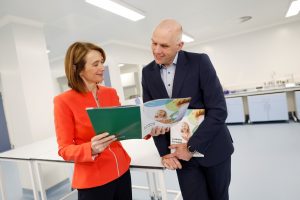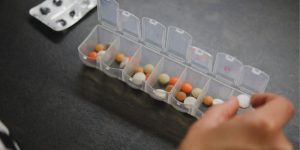The Government continues to overspend millions on expensive big brand medicines despite the availability of more affordable, equally effective generic and biosimilar alternatives.
- State losing out on €40 million in savings per annum on just two medicines
- Ireland at bottom of European league table in access to affordable biologic medicines
- Event speakers include Robert Watt, Sec. Gen. of Department of Public Expenditure; John Given, Chief Pharmacist at University College Hospital Galway; and Averil Power, Irish Cancer Society CEO
- Medicines for Ireland will publish a set of solutions in its new manifesto, A Vision for Health.
Irish healthcare leaders will meet to discuss new strategies for medicine pricing and procurement reform at an event in Dublin on Wednesday. A key message will be that while Ireland is well behind our European neighbours in procuring the most affordable medicines, that immediate reform can reverse this position.
The event will also mark the publication of Medicines for Ireland’s new manifesto, A Vision for Health, which sets out clear and proven solutions s for medicines policy, pricing and procurement, including:
- Fast-tracking the publication of the Government’s long-promised National Biosimilars Policy;
- Developing a national supply and pricing agreement that creates a level playing field for all pharmaceutical companies;
- Government quotas mandating minimum generic and biosimilar medicine usage;
- Ensuring that the HSE’s procurement system prioritises use of the most cost-effective medicines;
- Overhauling the HSE’s High-Tech Medicines Scheme, including a framework for interchangeability and expansion of medicines on the list; and
- An information campaign to raise public understanding of their medication options, the development of medicines policies, and the impact of policy on pricing and supply.
Medicines for Ireland, which represents Ireland’s generic, biosimilar and value added medicines sector, believes that the Government’s lack of clear medicines policy is still too heavily dependent on expensive branded medicines limiting the HSE’s ability to procure more affordable drugs, thereby limiting patient access to other life-enhancing treatments and continuing the HSE’s unnecessarily high level of expenditure on medicines.
For example, the Government spends more than €450 million a year on branded biologic medicines, despite the widespread availability of more affordable but equally effective biosimilar alternatives.
Humira, a treatment for rheumatoid arthritis, costs the HSE over €120 million per annum. The patent for this medicine’s molecule, adalimumab, expired last October, opening the market to less expensive biosimilar alternatives. However, because of a lack of Government procurement policy, the uptake of a biosimilar alternative has been negligible, resulting in €25 million in missed savings each year.
In respect of generic medicines, there is also an issue in implementing reference pricing. Delays in implementing mandatory price reductions once the patent expires on a branded medicine is costing the Health Services millions each year. In the case of one branded inhaler, on which the State currently spends €30 million per annum, the failure to reduce the price of this medicine by 50% post patent expiry, as required under law, is costing taxpayers €15 million. There are many other similar examples.
A Vision for Health
Speakers at Wednesday’s event will include Robert Watt, the Secretary General of the Department of Public Expenditure; John Given, Chief Pharmacist at the University College Hospital Galway (who has successfully implemented a medicine cost saving programme); Averil Power, CEO of the Irish Cancer Society; and Owen McKeon, Chair of Medicines for Ireland and Country Manager at Mylan.
Commenting ahead of the event, Owen McKeon said:
“Ireland’s medicines budget is unsustainable. Our population is ageing and living longer, all of which is places huge pressures on our medicines bill. Yet, the Government continues to overspend millions on expensive big brand medicines despite the availability of more affordable, equally effective generic and biosimilar alternatives.
“Opting for generics and biosimilars provide a clear-cut way of containing the HSE’s medicines spend while ensuring the same quality of care for patients.
“This is not a revelation. The use of biosimilars, for example, is standard practice in the EU. The Government has itself acknowledged the benefits of biosimilar dispensing and committed, in 2017, to publishing a National Biosimilars Policy.
“Equally, in 2013 the Department of Health committed to using best value generics to ensure the greatest number of patients get timely access to medicines. Six years on, key aspects of this objective have yet to be implemented. As a result, the State continues to lose out on tens of millions of savings. Until further reforms are implemented, Irish patients will miss out on access to affordable medicines, with outdated purchasing systems resulting in the State continuing to overpay for many medicines”.








